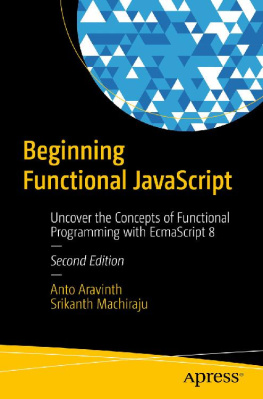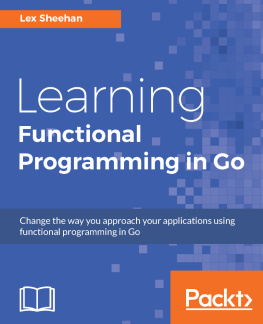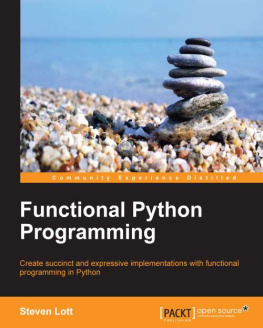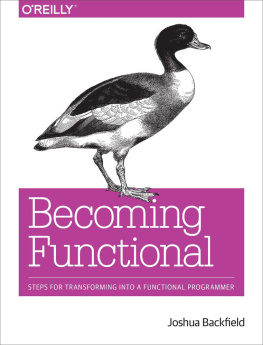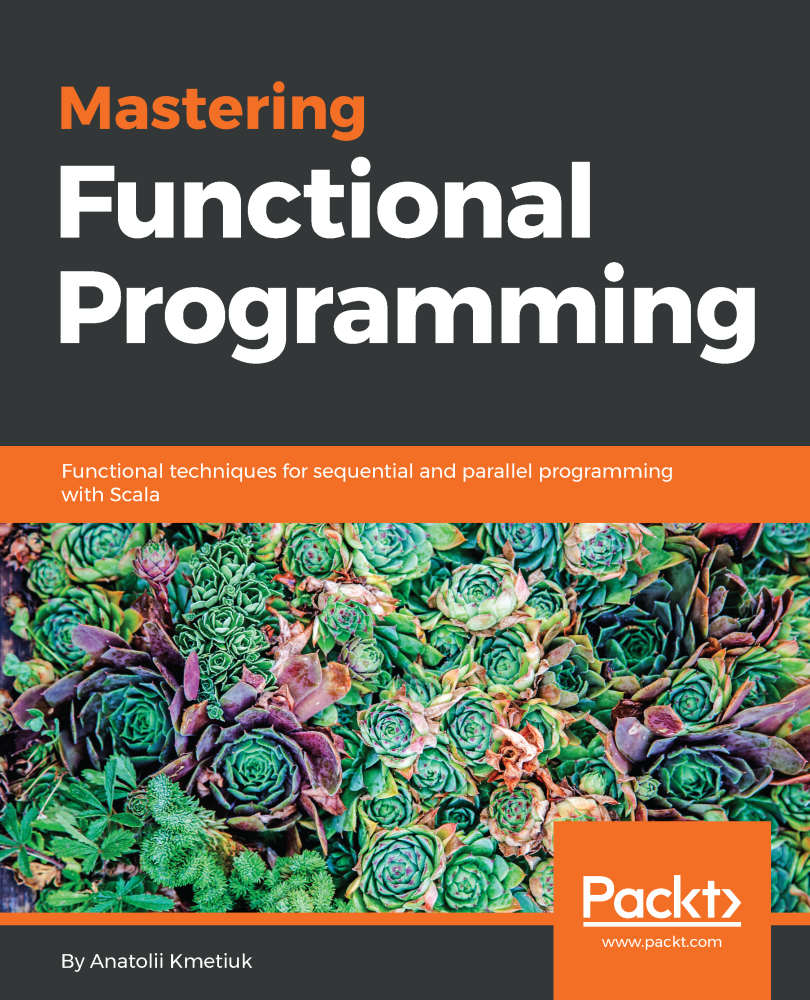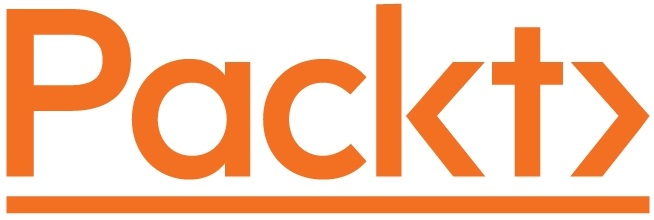Anatolii Kmetiuk - Mastering Functional Programming
Here you can read online Anatolii Kmetiuk - Mastering Functional Programming full text of the book (entire story) in english for free. Download pdf and epub, get meaning, cover and reviews about this ebook. year: 2018, publisher: Packt Publishing, genre: Computer. Description of the work, (preface) as well as reviews are available. Best literature library LitArk.com created for fans of good reading and offers a wide selection of genres:
Romance novel
Science fiction
Adventure
Detective
Science
History
Home and family
Prose
Art
Politics
Computer
Non-fiction
Religion
Business
Children
Humor
Choose a favorite category and find really read worthwhile books. Enjoy immersion in the world of imagination, feel the emotions of the characters or learn something new for yourself, make an fascinating discovery.

- Book:Mastering Functional Programming
- Author:
- Publisher:Packt Publishing
- Genre:
- Year:2018
- Rating:3 / 5
- Favourites:Add to favourites
- Your mark:
Mastering Functional Programming: summary, description and annotation
We offer to read an annotation, description, summary or preface (depends on what the author of the book "Mastering Functional Programming" wrote himself). If you haven't found the necessary information about the book — write in the comments, we will try to find it.
Learn how functional programming can help you in deploying web servers and working with databases in a declarative and pure way
Key Features- Learn functional programming from scratch
- Program applications with side effects in a pure way
- Gain expertise in working with array tools for functional programming
In large projects, it can get difficult keeping track of all the interdependencies of the code base and how its state changes at runtime. Functional Programming helps us solve these problems. It is a paradigm specifically designed to deal with the complexity of software development. This book will show you how the right abstractions can reduce complexity and make your code easy to read and understand.
Mastering Functional Programming begins by touching upon the basics such as what lambdas are and how to write declarative code with the help of functions. It then moves on to more advanced concepts such as pure functions and type classes, the problems they aim to solve, and how to use them in real-world scenarios. You will also explore some of the more advanced patterns in the world of functional programming, such as monad transformers and Tagless Final. In the concluding chapters, you will be introduced to the actor model, implement it in modern functional languages, and explore the subject of parallel programming.
By the end of the book, you will have mastered the concepts entailing functional programming along with object-oriented programming (OOP) to build robust applications.
What you will learn- Write reliable and scalable software based on solid foundations
- Explore the cutting edge of computer science research
- Effectively solve complex architectural problems in a robust way
- Avoid unwanted outcomes such as errors or delays and focus on business logic
- Write parallel programs in a functional style using the actor model
- Use functional data structures and collections in your day-to-day work
If you are from an imperative and OOP background, this book will guide you through the world of functional programming, irrespective of which programming language you use.
Downloading the example code for this book You can download the example code files for all Packt books you have purchased from your account at http://www.PacktPub.com. If you purchased this book elsewhere, you can visit http://www.PacktPub.com/support and register to have the files e-mailed directly to you.
Anatolii Kmetiuk: author's other books
Who wrote Mastering Functional Programming? Find out the surname, the name of the author of the book and a list of all author's works by series.

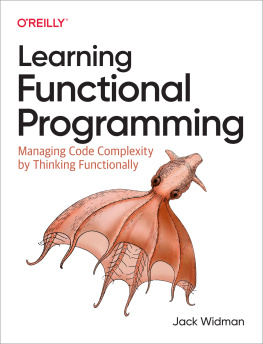
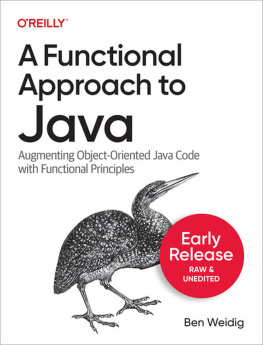
![Anto Aravinth [Anto Aravinth] - Beginning Functional JavaScript: Functional Programming with JavaScript Using EcmaScript 6](/uploads/posts/book/120482/thumbs/anto-aravinth-anto-aravinth-beginning.jpg)
